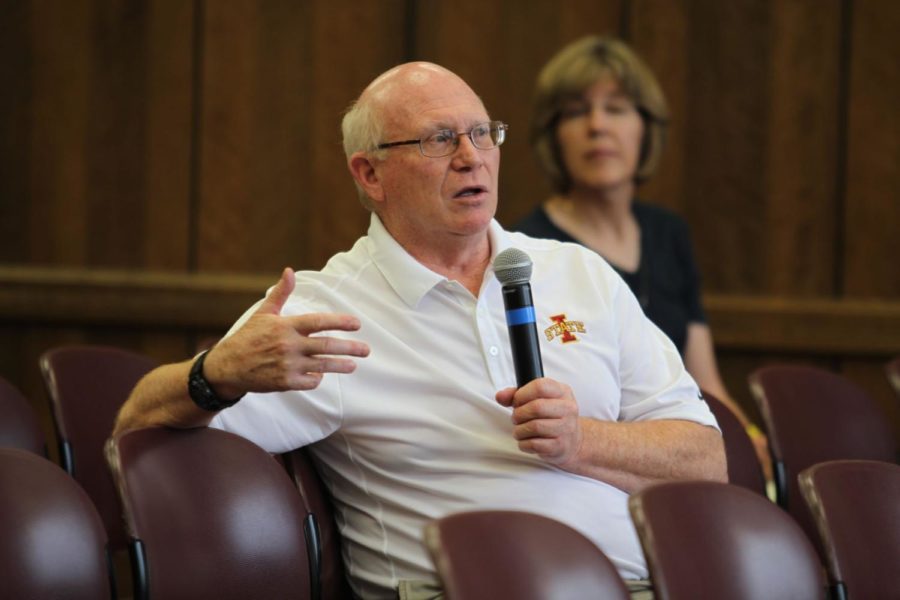Editorial: Learn from presidential search mistakes
October 3, 2017
Hiring university presidents for the regents’ universities is ultimately the Board of Regents’ responsibility, and is one of their most important duties. The process of vetting applicants takes time, involves hours of conversations and inquiry and tests a campus’ commitment to fairness, openness and equality.
The 21-person search committee at Iowa State includes faculty, staff, students, community members as well as regents. The committee has spent a great deal of time, pored over many pages of information and narrowed the field of finalists down to no more than four people who will be on campus Oct. 9, 10, 11 and 12. The search committee members should be thanked for their dedicated service and allowed to pursue that service through the entire search process.
As Iowa State undergoes the process of selecting our next president, the regents’ recent experience at the University of Iowa cannot be ignored. Recent revelations that former chairman Bruce Rastetter arranged a series of meetings at his home for regents to recruit Bruce Harreld and to avoid open meeting requirements affirms concerns that already existed because of other unusual aspects of Mr. Harreld’s hiring.
Oscar Wilde is quoted as saying “experience is simply the name we give our mistakes.” But another repeated maxim particularly suited to educational institutions is that we can and do learn from our mistakes. In this instance, we should learn from the University of Iowa’s experience, whether or not you label it a ‘mistake.’
The ISU community will learn the identity of each finalist no more than 24 hours before that person visits campus. That is a very brief time for ISU family members to do their individual vetting. Equally brief is the possibility of only one-day visits by the finalists, unless we will have more than one finalist on campus at a time, with the search committee doing some very deft scheduling.
Many ISU family members have an interest in this decision and want to be able to meet the finalists, to listen, to ask questions, to get a sense of who the person who will be holding this key position really is. More time for the ISU community to interact with finalists would be desirable. In the absence of greater time and wider involvement, let us hope that experience is a great teacher for those making the final decision.
















